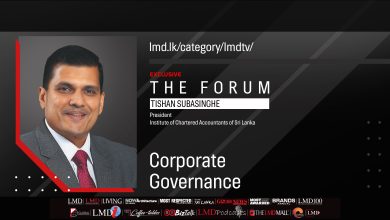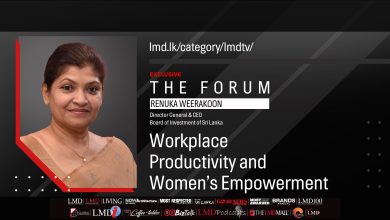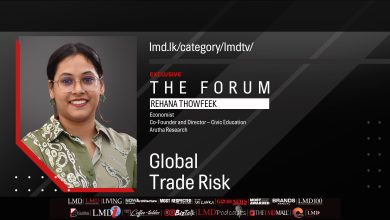LMD TV
“The 20th Amendment created a super creature not accountable to parliament or the courts,” said attorney-at-law and expert on constitutional and fundamental rights law Suren Fernando, as he formulated his thoughts on the changes that should be made to governance structures.
He commented: “While the legislature is meant to be one of the checks on the executive, the executive could stultify the ability of parliament to act as a check.”
Speaking of his analogy of constitutional changes to a virtual game of Ping-Pong, Fernando said: “I suppose this is the next stroke of that game of Ping-Pong if the 21st Amendment is enacted. The game has been political hypocrisy. The electors need to hold the MPs who treat it as such accountable.”
The price of democracy is eternal vigilance. The public must counter this political hypocrisy by constantly speaking out and making their demands known. If not, Sri Lanka would soon cease to be a democracy.
Referring to the constitutional deadlock in late 2019, he commented: “We have democracy – a diluted form of it because the legislature is unable to exercise its duty to be a check and balance on the executive.”
“The inability to hold individuals who take these decisions accountable at the time, and not well after the fact, is in a way a breakdown of democracy but quite different to what I was speaking of at the time,” he reiterated.
Commenting on the people’s protests, Fernando said that “the aragalaya can pressurise their parliamentary representatives to enact reforms and institute the appointment of independent commissions – such as the independent election commission – under a constitutional council type framework and then call for elections.”
He continued: “A fresh mandate could be obtained by whomever. Then with a constitutional system that would permit good governance, create the type of political stability, which is being called for by the International Monetary Fund (IMF) and other international partners.”
“I am in complete disagreement with the suggestion that all 225 should go home,” he said, vehemently – “because you have several who… have proved that they are competent. They speak coherently on a variety of national issues and on behalf of the citizens of Sri Lanka. These types of individuals certainly should be returned to the next parliament.”
Contemplating the corruption, he contended: “The 19th Amendment was a baby step in addressing corruption because you could establish independent commissions… Thereafter, you need to give time for those bodies to work as well.”
Fernando asserted that “the appointment process has been taken away; procurement and audit have been scrapped completely. Now it is proposed to bring those back.”
“You won’t have a situation anywhere in the world where there’s zero corruption. However, when corruption can be detected, the legal process can begin. We need to start somewhere but to see results might take a little time,” he warned.
Stating his perspective, Fernando went on to say that “there is no perfect system of government; there are no perfect individuals. We need to try and select the best model. People certainly need to start selecting more wisely. Even with candidate options given by a particular party sometimes the people selected are, I think, the worst of that lot. So people need to select better.”
And the constitutional lawyer emphasised: “Sometimes you need to hit rock bottom before you can begin to progress. While things may look a little hopeless from the economic standpoint, we must at this moment appreciate the equality and equal value of all Sri Lankans, and continuously engage in the democratic process.”
Pressure must be brought to bear on elected representatives to bring about change. Simultaneously, an economic programme must be devised. In this way, some of the bigger issues that this country has been grappling with since independence may be redressed.






